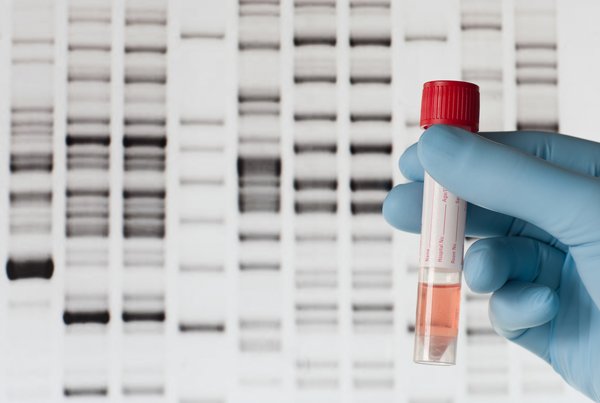Genomics is the study of genes and their functions. With technology advancements dramatically improving the cost, accuracy, and time to map a person’s entire genome, many rapidly growing companies are emerging in the genomics sector.
Innovation investors, such as Cathie Wood of ARK Investment Management, believe these advances are creating a "Genomic Revolution." Although there were positive developments from many genomic companies in 2021, the financial rewards for investors were deferred as the S&P Biotechnology Select Industry Index fell 18%.
In 2022, investors can look to better returns from genomics companies in three broad categories:
- Genetic sequencing and analysis: Sequencing companies are the "engines" of genetic research. Sequencing is the process of reading the 3.05 billion base pair sequences looking for variants (sometimes called defects) where the sequence is missing or different from normal. Sequencing underpins genomic research and is a critical component of genetic testing. Technology advancements have decreased sequencing costs by 28% per year. The overall sequencing market is projected to grow to $35 billion by 2030.
- Genetic testing and diagnostics: Testing and diagnostic companies use sequencing data to identify specific genetic variations and map them to known conditions. With one in six people having a genetic variant underlying their health condition, the market for testing services is projected to be more than $17 billion by 2026.
- Genetic editing: The promise of gene editing is that it acts like “molecular scissors” by targeting a specific variant in the DNA, slicing it out by cutting the nucleotides holding the defect in place, and then filling in the gap. Gene-editing companies have the potential to treat, and even cure, diseases caused by genetic variants. The gene-editing market is projected to reach $15 billion by 2028.

| Genomics Company | Market Capitalization | Description |
|---|---|---|
| Illumina (NASDAQ:ILMN) | $52 billion | Industry leader in DNA short-read sequencing technology. |
| Pacific Biosciences of California (NASDAQ:PACB) | $2 billion | Champion of DNA long-read sequencing technology. |
| Exact Sciences (NASDAQ:EXAS) | $14 billion | Colon cancer testing for consumers at home. |
| Invitae (NYSE:NVTA) | $2 billion | Genetic testing platform for physicians. |
| Fulgent Genetics (NASDAQ:FLGT) | $2 billion | Pediatric disease and oncology testing. |
| Intellia Therapeutics (NASDAQ:NTLA) | $7 billion | CRISPR gene editing for protein disorders. |
| CRISPR Therapeutics (NASDAQ:CRSP) | $5 billion | CRISPR gene editing for blood diseases. |
Best genomics stocks of 2022
1. Illumina
Illumina is the industry leader in using short-read sequencing technology, which breaks DNA into short segments to aid in analysis for genetic research, testing, and medical treatment. With an installed base of more than 20,000 sequencing systems, Illumina holds more than 90% of the global market.
Sequencing volumes continue to grow in research and are growing rapidly in clinical applications, with the key drivers including whole-genome sequencing, cancer testing, and recurrence monitoring. Despite an active review by regulators, Illumina surprised the industry by completing the acquisition of blood testing company Grail -- a move that helped push its stock price down 40% and could still be overturned.
In 2021, llumina reported revenue of more than $4.5 billion, an increase of 40% year over year.
2. Pacific Biosciences of California
The company known as PacBio is pioneering long-read sequencing technology, which uses longer DNA segments to map the whole genome. Although the Human Genome project was declared “complete” in 2003, PacBio highlighted the benefits of its HiFi whole-genome sequencing technology by helping scientists fill in the remaining 8% of the genome missed in the earlier effort.
In 2021, PacBio agreed to acquire Omniome, Inc., for its Sequencing by Binding (SBB) chemistry. SBB is an alternative approach to short-read sequencing and is designed to read repetitive, hard-to-read stretches of the genome. When successfully integrated, PacBio’s HiFi sequencing, combined with SBB chemistry, could make it an alternative for scientists who want the benefits of both short- and long-read sequencing.
In 2021, PacBio reported revenue of $36 million, a 33% year-over-year increase, and placed 48 next-generation Sequel sequencing systems in the fourth quarter.
3. Exact Sciences
Exact Sciences developed the Cologuard home test for colon cancer as an alternative to colonoscopies.
Cologuard represents an $18 billion market opportunity and is projected to generate $1.1 billion in revenue in 2021. Exact is also developing products for the $25 billion multi-cancer screening market and the $15 billion recurrence monitoring market.
In 2021, Exact reported revenue of $1.8 billion, an 18% year-over-year increase, against a net loss of $596 million.
4. Invitae
Unlike many companies developing high-cost tests for a single genetic variant, Invitae is building a platform to test for several thousand genetic variants, with tests costing less than $250.
In July, Invitae signed an agreement with PacBio to use its HiFi sequencing and SBB chemistry for whole-genome testing. Beyond testing, Invitae helps clinicians assess the results and has built tools to make testing data more actionable and easier to understand.
In 2021, Invitae reported revenue of $460 million, a 63% year-over-year increase, against a net loss of $379 million.
5. Fulgent Genetics
In 2020, Fulgent’s revenue exploded from COVID-19 testing, which continued at a reduced rate in 2021 as the company supported return testing for schools and government.
Fulgent has a growing genetic testing business for pediatric diseases, which management expects to generate revenue of $110 million in 2021, representing 201% year-over-year growth.
Management expects to end 2021 with $1 billion in cash, net of acquisitions such as the recent deal to buy CSI Laboratories. Fulgent also announced a partnership with Helio Health and an investment in Chinese joint venture FF Gene Biotech to advance its oncology testing services.
6. Intellia Therapeutics
Intellia and its partner, Regeneron Pharmaceuticals (NASDAQ:REGN), made headlines in 2021 with clinical data showing NTLA-2001 in vivo (in the body) CRISPR-Cas9 gene editing was safe and effective in treating protein disorders.
In the second quarter of 2021, Intellia raised $690 million in a stock offering and ended the quarter with $551 million on its balance sheet. The offering will help fund the company’s pipeline, including hereditary angioedema, acute myeloid leukemia, and other research-stage programs.
In 2021, Intellia reported revenue of $33 million against a net loss of $268 million.
7. CRISPR Therapeutics
CRISPR and its partner, Vertex Pharmaceuticals (NASDAQ:VRTX), are developing CTX001 using CRISPR-Cas9 ex vivo (out of body) gene editing to treat sickle cell disease and transfusion-dependent beta thalassemia.
Based on the latest clinical results, Vertex paid CRISPR $900 million in 2021, with the potential for an additional $200 million upon regulatory approval. In return, Vertex increased its share of CTX001 future profits from 50% to 60%.
In 2021, CRISPR reported total revenue of $913 million, including the payment from Vertex, and finished the year with a $1.6 billion cash position that should fund years of continued research and development.
Many investors find genomics companies complicated. That’s understandable when many are founded by serious researchers and even Nobel Prize winners. Other investors find them too volatile, particularly gene-editing stocks with prices often in a lull for long periods then moving strongly up or down in a single day, depending on the outcome of clinical trials.
From a higher-level perspective, genomics companies can look like the technology companies many investors love. Sequencing companies can be compared to companies such as Alphabet (NASDAQ:GOOG) (NASDAQ:GOOGL) that are organizing and analyzing voluminous amounts of data. Testing companies can be compared to e-commerce companies such as Zillow Group (NASDAQ:Z) (NASDAQ:ZG) that are helping consumers get the information they need to make informed decisions. Gene-editing companies can be compared to a pre-revenue special purpose acquisition company (SPAC) such as Virgin Galactic Holdings (NYSE:SPCE) that goes public before it has a working product.
The rapid growth expected in all of these genomic segments means there will be many winners. Investors can start by picking a company from the segment they find most attractive. Alternatively, investors can consider a basket strategy of putting money into several companies and watching them closely over several years.
For patient, buy-and-hold investors, genomics could be good therapy for your portfolio.















